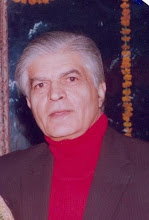
NERVOUS SYSTEM 3b
The hum of life
Nerve Facts Speed of Signals
- Each neuron has only one long arm the axon, but this can be anything from a fraction of 1cm long to fraction of 1m in length.
- Myelinated nerves (insulated sheathed) can transmit nerve signals 200 times faster than un-myelinated nerves.
- The faster nerve signals travel at over 120 meters a second over 250 mph.
- After passing a signal,
-a neuron recovers ready to pass another signal in less than one hundredth of a second.
- There are 100 billion neurons in your brain.
- Each neuron is linked to hundreds of other neurons.
Nerve Synapse, Nerve function
- Excitement and inhibition
- If every nerve signal was passed on by the synapse, we would be overwhelmed by nerve signals.
- So at some synapses the receiving cell reacts to the neurotransmitter (NT) by passing on the signal, but other (NT) react by blocking it.
- This is called excitation and inhibition.
- Some tranquillizing drugs work by increasing inhibition.
Some stimulants increase excitation
.
Neurotransmitters Chemistry of Signals
- There are over 40 neuron-transmitting chemicals.
- Acetylcholine is involved in making muscles contract.
- Noradrenalin helps control heart beat and blood flow.
- Dopamine works in parts of the brain that control movement. Poor response to dopamine may cause Parkinson's disease.
- Endorphins are ‘neuropeptide’ transmitters produced and used by the brain to control pain.
CNS & Nerves
Symptom to remember
- Loss of sensation in a part of your body – numbness
- Tingling }
} sensation in hands and feet
- Burning }
- Weakness of muscle
- In-coordination of movement
- Loss of movement
- Memory loss
Any question should be address to: drmmkapur@gmail.com you will receive further information regarding your question.
All earlier posts are stored in archives for your access and review





No comments:
Post a Comment